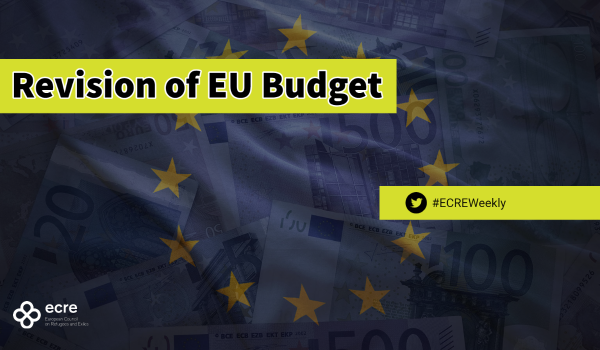As part of the mid-term revision of the Multiannual-Financial Framework (MFF), the European Commission asked Member States to increase their budget contributions by about 65,8 billion euros. This is an unprecedented request for additional money to the Member States. By way of comparison, a previous revision in 2016 only required an internal reshuffling of EU resources (for about 6 billion euros), without touching the overall ceiling. Once approved, about half of the new resources will be used to support the reconstruction of Ukraine and to top up both internal and external migration priorities, while the remaining amounts will be used to cover increased costs of the Next Generation EU and to boost EU competitiveness.
The Ukraine pillar will be financed through grants and guarantees supported by the EU budget -called “Ukraine reserves”- and loans that will find coverage on financial markets. For the Ukraine reserves (the grants’ part), Member States will be asked to chip in a minimum of 2,5 billion euros in total each year, for a maximum of 50 billion euros for the period 2024 – 2027. According to Commission estimates, this will result in 17 billion euros of contributions to the EU budget (for grants) and about 33 billion euros of loans through market investments. According to Agence Europe, this is the biggest financial instrument that the EU has ever created for a third country. This is justified by IMF projections of the need for rebuilding Ukraine which amounts to about 384 billion euros in the next 10 years (142 billion euros for 2023 – 2027).
The migration pillar will receive a substantial boost of new resources to support external migration objectives (a big part of it being returns), cooperation with countries of origin and transit, and, to a lesser extent, internal migration priorities in line with the recent Council General Approach on key Pact reforms, for an overall total of 15 billion euros.
On internal migration, in the wake of the recent advancements on the Pact, the Commission is proposing to expand the Heading 4 “Migration and Border Management” by 2 billion euros for 2024 – 2027. The amount corresponds to an overall 10% increase of this MFF chapter for the whole period 2021 – 2027. In the context of Ukraine displacement in 2022, the European Commission used almost all reserves available under the Thematic Facility to provide emergency assistance to Member States bordering Ukraine and is running out of resources to be used for other objectives. With the current proposal, it appears that the main purposes will be to support the responsibility and “financial solidarity” parts of the Pact, i.e. screening and border procedures, returns, and also reception and relocations.
The main budget expansion on migration will affect external policies, with a proposed increase of 10.5 billion euros (about 10% more of the total budget for Heading 6 “Neighbourhood and the World”). The Commission justifies the need for the increase to (1) maintain similar levels of funding available under the European Trust Fund for Africa within the Neighbourhood, Development, and International Cooperation Instrument – NDICI – (in particular to deepen cooperation with countries from the Southern neighbourhood to increase returns); (2) support countries hosting Syrian refugees like Lebanon, Turkyie and Jordan; (3) provide support to partner countries, such as the recently promised Macro-Financial Assistance loan to Tunisia and assistance to the Western Balkans. Finally, the proposal also includes a top-up on humanitarian aid reserves that are going to be exhausted for support to the earthquakes in Syria and Turkyie, with additional 2.5 billion euros for the Solidarity and Emergency Aid Reserve to address natural disasters and public health crises.
The budget proposed operationalises recent migration and asylum agreements and action plans that outsource migration responsibilities to third countries, focus on returns, and tighten border controls in exchange for EU resources. This includes the recent General Approach reached by the Council on 8 June, the Action Plan for Western Balkans on migration, EU Action plan on Central Mediterranean, as well as the proposed Macro-Financial Assistance loan to Tunisia.
In terms of next steps, the revision of MFF requires unanimity of the Council after receiving Parliament’s consent expressed by an absolute majority. The process is expected to be concluded in Autumn in order to allow for implementation already in 2024.
For further information:
- ECRE, Editorial: Migration Pact Agreement Point by Point, 9 June
- ECRE, Greece: EU-Funded Refugee Camps in the Aegean Built on a Regime of Incarceration, Authorities Use Criminal Proceedings as “Intimidation Tactic” Towards Humanitarians Amid Ongoing Pushbacks of Migrants, Refugees in Türkiye Suffer From Increasing Anti-Migrant Sentiment and Poverty, 5 May

